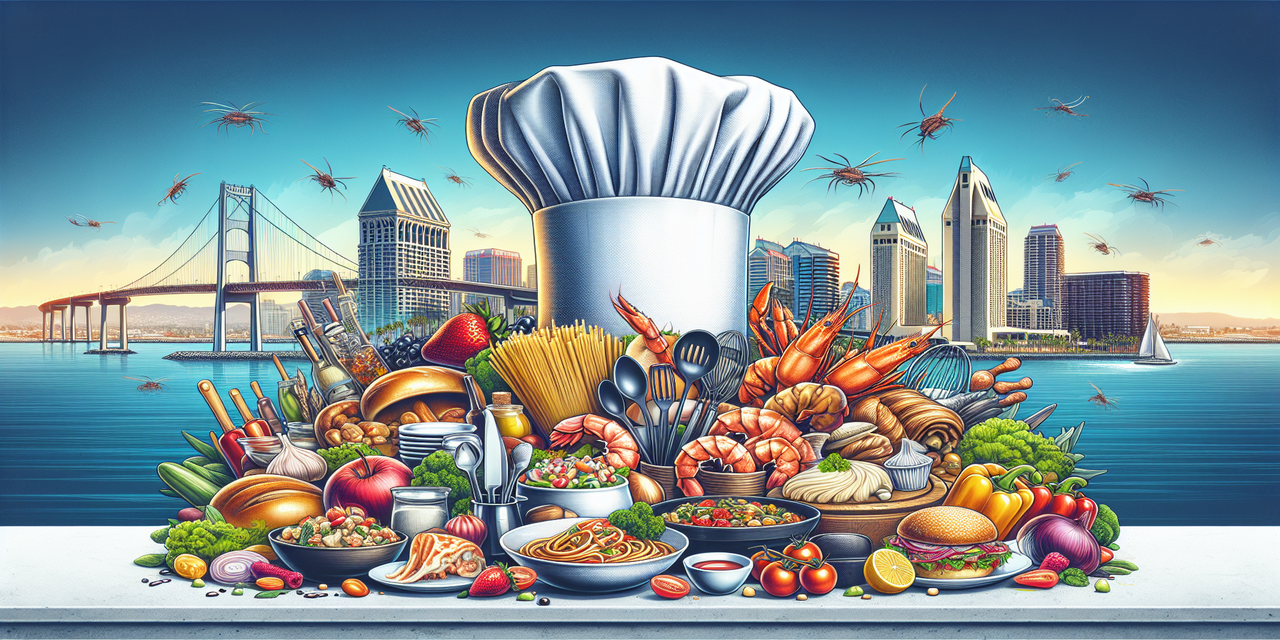How to Become a Successful Chef in San Diego: Key Takeaways
- San Diego offers excellent culinary education options, including programs at the San Diego College of Continuing Education and California Culinary Arts Institute.
- Hands-on kitchen experience and networking through local events like the San Diego Bay Wine & Food Festival are essential.
- Understanding and incorporating San Diego’s diverse local cuisine, influenced by its coastal and Mexican heritage, can boost a chef’s success.
Learning the skills, gaining experience, and engaging with San Diego’s vibrant culinary scene are critical for anyone aiming to become a successful chef in this city.
This guide details the educational pathways, practical tips, and community involvement needed to thrive as a chef in San Diego.
1. Educational Pathways for Chefs in San Diego
Formal culinary education is a foundational step towards becoming a skilled chef. San Diego provides several reputable institutions that cater to different training needs and budgets.
The San Diego College of Continuing Education offers a comprehensive 610-hour Culinary Arts program. This affordable program covers essential topics including kitchen operations, food safety, and menu development. A modest materials fee and costs for uniforms apply, making it an accessible option for many.
For personalized, hands-on training, the California Culinary Arts Institute is a great choice. It emphasizes small class sizes and direct mentorship with experienced chefs working in commercial kitchens, providing a real-world cooking environment.
Those seeking a broader education that balances culinary skills with business acumen can turn to the San Diego Culinary Institute. Its curriculum combines technical training with courses on professionalism, safety, and sanitation to prepare students for leadership roles.
For chefs aiming for management positions, exploring the kitchen manager job description can provide valuable insights into the responsibilities and skills required.
2. Gaining Practical Experience in San Diego Kitchens
While education provides a solid foundation, hands-on experience is indispensable. Starting in entry-level roles such as a line cook or prep cook helps aspiring chefs develop essential skills and learn how busy kitchens operate under pressure.
San Diego’s diverse food industry includes restaurants, hotels, and catering companies that offer varied environments to build experience. Each setting teaches unique culinary styles and kitchen management techniques, increasing overall employability.
Exposure to different cuisines and operational styles in San Diego’s multicultural culinary landscape contributes to a chef's versatility and creativity.
If you're new to kitchen roles, reviewing the prep cook interview questions and tips can help prepare for entry-level positions.
3. Networking and Community Engagement in San Diego Culinary Scene
Building a professional network is a vital step toward career advancement. San Diego is home to dynamic culinary events such as the San Diego Bay Wine & Food Festival, which attracts international chefs and food professionals.
Participating in these events allows aspiring chefs to connect with industry leaders, learn about latest trends, and gain exposure. Joining local culinary groups and associations can also support continuous growth and open doors to new opportunities.
Employers looking to build a great kitchen team might find useful strategies outlined in how to hire reliable kitchen staff.
4. Understanding San Diego Local Cuisine for Chefs
San Diego’s culinary identity is deeply influenced by its coastal location and proximity to Mexico. This fusion creates a unique food culture that chefs can incorporate into their cooking style.
Specialties such as fish tacos, carne asada fries, and California burritos reflect the local taste and are staples in many San Diego eateries. A successful chef embraces these flavors and may innovate by blending traditional recipes with modern culinary techniques to appeal to local diners.
The position of chef de partie often focuses on mastering specific dishes and regional cuisine, making it ideal for chefs interested in San Diego’s local flavors.
5. Commitment and Professionalism for Chefs in San Diego
Success in the culinary field demands dedication. Chefs often put in long hours, including weekends and holidays, so resilience is essential.
Beyond cooking, strong management, communication, and leadership skills contribute to running an efficient kitchen. A professional attitude includes maintaining high standards of safety, sanitation, and teamwork.
Regularly honing culinary techniques and staying updated on industry trends ensures continued growth and career advancement in San Diego’s competitive market.
For advancing your career, learning about the roles and responsibilities of a sous chef provides perspective on what professional growth entails.
6. Licensure and Certification Requirements in California
In California, aspiring chefs must obtain a food handler card within 30 days of starting work. This certification confirms knowledge of food safety practices and is critical for compliance with health regulations.
While other certifications are optional, credentials from organizations like the American Culinary Federation can enhance a chef’s professional profile and open doors for higher leadership roles.
7. Government and Official Resources for San Diego Chefs
Reliable information and support are available from official bodies overseeing food safety and professional standards:
- California Department of Public Health — details on food safety regulations and food handler card requirements.
- American Culinary Federation — certification programs and career resources for chefs.
- San Diego County Department of Environmental Health — local food safety and sanitation standards.
How to Become a Successful Chef in San Diego: Conclusion
Becoming a successful chef in San Diego requires a blend of solid culinary education, diverse hands-on experience, and active involvement in the city’s vibrant food community.
By understanding local flavors, maintaining professionalism, obtaining necessary certifications, and building a strong network, aspiring chefs can achieve rewarding and lasting careers in this dynamic culinary landscape.
For those interested in culinary leadership, the differences between executive chef and chef de cuisine can help clarify career paths and goals.


.png)

.png)
.jpg)